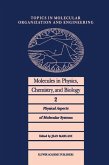Quantum refert in quae tempora vel optimi cujusque virtus incidet. (From an architrave on the Palatine.) The history of the development of scientific thought offers several examples of unconventional, perplexing and untimely conjectures advanced by obscure men. The molecular hypothesis set forth by Amedeo Avogadro in 1811 is one of these. It was little noticed when proposed and it soon fell into oblivion. Although numerous attempts have been made in the past one hundred years to identify the main reasons for the neglect and the indifference which surrounded the molecular hypothesis, very little effort has been devoted to showing how historical circumstances and Avogadro's own personality hindered the acceptance of the concepts he had proposed. After half a century of intense scientific activity, Avogadro passed away as little known in Italy as abroad. He had few close friends and his personal life seemed centered on his large family and his work. Outside this limited circle, he avoided social engagements and intellectual contacts. This attitude may have been encouraged by the political situation in Piedmont, his native country, which remained essentially hostile to intellectual activity until 1840, by which time Avogadro was sixty-four. The only respite in Piedmont had come during the short-lived Napoleonic regime; and quite remarkably, the molecular hypothesis was conceived and published at the very end of this period.
Hinweis: Dieser Artikel kann nur an eine deutsche Lieferadresse ausgeliefert werden.
Hinweis: Dieser Artikel kann nur an eine deutsche Lieferadresse ausgeliefert werden.








